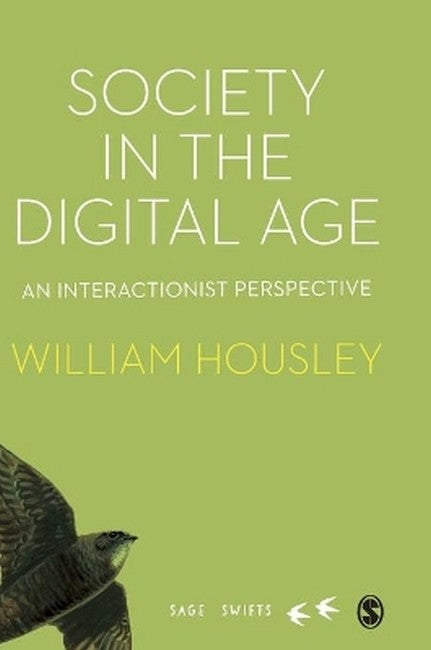William Housley PhD, DSc.Econ. FAcSS is Professor of Sociology at Cardiff University. He is an internationally recognised expert in qualitative and social research methods, sociological theory, the study of practical reason, science and technology studies, ethnomethodology, membership categorization analysis, social interaction and digital sociology. His contribution to Sociology was confirmed through the award of a DSc Econ. by Cardiff University in 2012 for his internationally recognized work in the field of interaction, communication and social organization. He has served as an editor of Qualitative Research (SAGE) and the editorial board of Big Data and Society (SAGE). Professor Housley was awarded the prestigious Vincent Wright Chair, at Sciences Po, Paris, for 2017. He has published numerous papers and books, including Society in the Digital Age: An Interactionist Perspective (2021, SAGE).
Request Academic Copy
Please copy the ISBN for submitting review copy form
Description
1. Introduction: We are Still Interactionists 2. Digital Society and Disruptive Technologies 3. Digital Society and Interaction 4. Digital Society, Ethnomethodology and Social Organisation 5. Digital Society and Mundane Civic Culture-in-Action 6. Digital Society and the Pivot to Voice 7. Conclusion: Reflections and Interactionist Futures
Professor Housley's book demonstrates the power of interactionist theory, methods, and studies for the analysis of society in the digital age, and shows how digitally infused social changes are embedded within the organisation of social and societal processes. -- Dirk vom Lehn Housley's brilliantly engaging book shows that an interactionist perspective on society in the digital age is precisely what is needed to inform debates - within a range of disciplines - about automation, big data, social media platforms, and their implications for communication and the interactional construction of the social world. This book is essential reading for anyone interested in better identifying the most important questions for the future of civic society in ways that give us any hope of answering them. -- Dr Saul Albert

